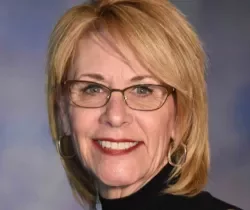With all the detailed planning that goes into major trade shows, conferences and other large events, often overlooked is one segment of attendees that does need some special attention: individuals with disabilities.
The Centers for Disease Control and Prevention (CDC) estimates that 53 million adults in the U.S. have a disability. Their disabilities, however, don’t stop many of them from attending events. Event planners know this and are much more focused today on creating accessible events. Still, there’s more that can be done.
From the venue selection and preparation to the use of certain event technologies, event planners can create an experience that truly lets individuals with disabilities know they have been considered with great care.
Selecting and Preparing the Venue
When planning a trade show, look for venues that are easy to access and navigate by individuals with disabilities. The venue should display features such as:
· Barrier-free, well-lit entrances accessible for individuals with various disabilities including those aided by service animals and the visually impaired
· Restrooms that accommodate individuals with service animals
· Wide doorways (32 inches with the door open to 90 degrees) leading to conference rooms, lunchrooms, session rooms, etc. with wide aisles to accommodate wheelchairs and other mobility vehicles, as well as handicapped-accessible elevators (i.e., well-lit, call buttons with visual and audio signals that can be reached from a wheelchair or scooter)
· Easy-to-open doors with automatic/push button openers or lever handles versus revolving doors
· Well-marked, accessible exits with Braille and tactile signage for the visually-impaired
· Slip-resistant, level surfaces
· Ramps with handrails on both sides to help in less accessible areas
· Closed riser stairs with handrails on both sides
· Guest rooms equipped with hearing aid-compatible and volume-control telephones that can be accessed from a wheelchair or other mobile-assistance vehicle, TTY and televisions with closed-captioning, and adjustable room lighting
· Presentation rooms equipped with assistive listening devices, adaptive computer devices, roving microphones for audience questions and speaker podiums at ground level or accessible via a ramp or lift
Leverage Event Technologies to Assist Individuals with Disabilities
There are several event technologies that can make a real difference in the experience for individuals with disabilities. They can be leveraged from the registration process and the floor experience to presentations and communicating valuable information. Here’s how:
· Web-Based Event Registration Software enables individuals to register online onsite, with or without assistance. Through self-serve, onsite kiosks, individuals with disabilities can self-register. It’s important that the onsite registration area have desks that are height accessible and with the appropriate clearance for individuals using wheelchairs or scooters.
· Interactive Kiosks are also a great way to help individuals with disabilities better navigate an event venue. They also can be used to convey information about the event (i.e., agenda, schedule of events, exhibitor lists and booth numbers, floor plan) that help individuals with disabilities avoid unnecessary movement that may cause them to tire out or even miss activities or sessions they wanted to attend. Kiosks are also useful in presenting helpful information about the city in which the trade show is being held such as weather, lodging and transportation, restaurants and cultural attractions.
· High Resolution, Big Screen Displays in LCD and LED formats offer easier viewing of presentations and exhibitors’ information for individuals with vision limitations.
· Mobile Event Application Software offers convenient access to key information at trade shows, from program schedules to exhibitor lists. These apps help make getting around a large trade show floor easier and limit unnecessary movement for individuals with disabilities. Digital literature, which is both environmentally friendly and minimizes the need to carry bags, is also ideal for individuals with disabilities.
· Giant iTab technology transforms displays into giant smartphone formats, which can better accommodate individuals with developmental and/or vision disabilities, while encouraging engagement.
Deriving the greatest benefit from event technologies requires the right Solutions Architect who is mindful of the trade show planners’ goals and the needs of all attendees including those with disabilities.
When there are extra challenges to consider, it is important to select the right venue and event technology solutions provider to make the experience a good one for able-bodied and disabled attendees alike.



Comments
Great article - thank you so…
Great article - thank you so very much for bringing attention to weaving an accessible welcome mat to create disability-inclusive diversity events. My only recommendation is to not frame disability through a the Centers for Disease Control lens because the people with disabilities are not "sick" and they compose a vibrant market segment of $220 billion - that is more than the coveted teen market. Disability occurs at the intersection of the person and the built and/or electronic environment - so barrier removal is key.
Adding to the great ideas in the article, here are a couple of wonderful FREE valuable resources when planning accessible events. The Mid-Atlantic ADA Center (one of 10 regional ADA Centers around the country that are experts on the Americans with Disabilities Act - ADA), created two great free tools for the ADA National Network:
1) Accessible Events, Meetings and Conferences Guide: http://www.adahospitality.org/accessible-meetings-events-conferences-gu… ; and
2) "at your service" - a 20 minute video in English and Spanish with open captions and audio descriptions that are tips on great customer service offered by a variety of professionals with disabilities: http://www.adahospitality.org/at-your-service
Also, to learn about all things disability, check out regional ABILITIES EXPOS that are chock full of booths, exhibits, informational demonstrations and new products. These annual events are excellent for gathering information and networking, and occur in Los Angeles, NY Metro, Chicago, Houston, Boston, San Mateo and Toronto. For more information, visit https://www.abilities.com/expos/
Thanks and Happy Accessible Event Planning.
Add new comment